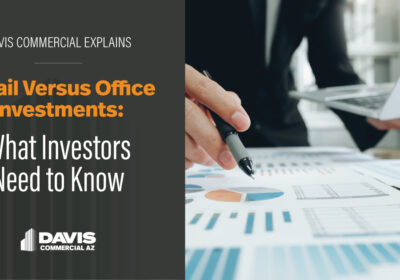Tips for a Smooth 1031 Exchange To Help You Save Money

If you’re thinking about selling an investment or business property, a 1031 exchange can be a great option to increase your cash flow by deferring taxes. Simply put, a 1031 exchange allows a taxpayer to sell an investment or real estate property and reinvest the proceeds in a similar, “like-kind” property that is equal to or greater in value. As long as IRS rules are diligently followed, capital gains on the sale of the property will be postponed. To help ensure your exchange is smooth and successful, here are five things to consider:
1. Start Looking For Your Next Property Before Your 1031 Date Kicks In
Before thinking about how to sell your property, be sure to educate yourself on the current market to see what’s available to you. It’s best to find an ideal replacement before you relinquish your current property. Then you can act quickly when the right opportunity presents itself. Here are some other things to consider as you’re searching for your replacement property:
- What are the average cap rates for the type of product you’re interested in?
- How long does product stay on the market? (This could help with negotiations.)
- What are the current lease rates and how does this compare to the product type you like?
- Are the lease rates for the investment property above or below market value?
- Where are current market vacancies?
2. Fall in Love With More Than One Property – You Can Identify Up To Three!
When undergoing a 1031 exchange, you have 45 days from the date you sell the relinquished property to identify potential replacement properties. Perhaps you
found more than one property and now can’t decide which one to choose from. Fear not, the IRS says you can designate three properties in the 45-day timeframe so long as you eventually close on one of them. Wondering why you should take advantage of this? The “three property rule” allows you to do your due diligence in deciding which investment is best for you and have a fall back property in the event your preferred replacement property can not be acquired.
3. Find The Perfect 1031 Facilitator
While the IRS has a list of possible entities that could facilitate a 1031 exchange, a qualified intermediary, also known as QI, is often the best way to go. This person or company will be responsible for such things as acquiring the original property from the owner, transferring the property to the buyer, ensuring all exchange steps and documentation occur in a timely manner, and more. While the IRS has specific rules on who a QI can and can not be, it’s important to consider the following as you’re finding the right facilitator to work with:
- Is this person or company licensed to work in your part of the country?
- Can they troubleshoot challenges?
- Are they a good problem solver?
- Can they work with the rest of your team such as your buyer rep, attorney, CPA?
4. Identify the Potential Risk and Reward With Each Property Type
As an owner of real assets, you understand that in order to achieve high returns, you must take on more investment risk. But how much risk is appropriate? It goes without saying that each type of real estate investment has its potential benefits and drawbacks. It’s important to identify what type of investments and risk level you’re comfortable with before you sell your property.
- There will always be a demand for apartments no matter the economy, therefore multifamily real estate is considered low-risk, often yielding low returns. However, affordability may be a concern for both landlords and tenants as construction costs rise steadily and the urban supply pipeline shrinks.
- Low unemployment signals continue strong demand for office space, however office buildings are less sensitive to consumer demand than shopping malls, which are drawing attention as value-add investments.
- As ecommerce continues to rise, warehouses are in high-demand across all segments. However, warehouses often require all-cash funding because low cap rates don’t justify the borrowing costs.
- Hotels and short-term rentals can survive economic changes quickly by adapting to occupancy rates and industry trends. However, these types of investments pose far more risk than apartments or office space with their reliance on business and tourism travel.
5. Work With A Qualified Buyer Rep – They Aren’t All Created Equal
Experienced professionals are crucial in winning a fair shake throughout lease negotiations and lease negotiations begin when the first call is made to the property. Consider the relationship with your buyer rep a partnership that pays dividends. A skilled commercial buyer rep helps business owners deduce the best investment opportunity base on years of real estate knowledge. Like any industry, understanding deal negotiations from the inside out ultimately saves a company money.
 About Andrea Davis
About Andrea Davis
Andrea Davis, CCIM, has practiced commercial real estate for over twenty years. Davis’s breadth of knowledge stretches from developers to landlords to buyer/tenant representation and investments. Within the commercial real estate industry, Davis has won numerous awards. The Phoenix Business Journal ranked Andrea Davis CRE in the top 10 of Ranking Arizona for the category of Office Brokerage. Her book, SimpLEASEity™, focuses on leasing and is the first in a series of commercial real estate guidebooks. Her next book, Simply Own It, the American Dream, is forthcoming this year.




